Union-Busted & Blacklisted: How Police Crush Community Mental Health Crisis Worker Reform, Part 1
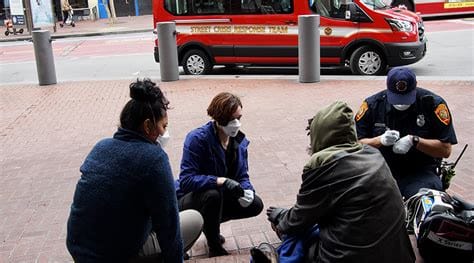
Summary:
Interview with Roslyn who shares her experiences with systemic oppression in labor organizing and police reform efforts. She helped unionize HealthReach, a healthcare program for the homeless, but management crushed the effort by firing unionized staff and hiring replacements.
Years earlier, Roslyn was arrested for filming police misconduct, gaining national attention when video evidence proved her innocence. Despite this, she faced ongoing police retaliation. A decade later, when she joined a mental health crisis response team, she was fired within days after officers refused to work with her due to her activist past.
Bio: Roslyn (pseudonym) has worked in community mental health since 2015 in both clinic and primary care medical settings. Her clients tend to present a wide range of concerns, including: life after incarceration, depression, anxiety, OCD, grief, and substance abuse.
Jeff Jones (Liberation Psychotherapy): Probably because I'm a therapist, but if I ask you anything you're not comfortable with, please don't answer it.
Roslyn: Okay. I'm still living in the city where the police continue to target me. It's so frustrating and I have such conflict. I really want to be loud about it. So yeah, I'm showing up with some uncertainty around how freely to share and make my name and specific story clear.
Jeff Jones (Liberation Psychotherapy): I want you to be comfortable. This is a solidarity project. It is nothing more than that. To be able to tell our stories. Could you first tell us about your history of unionizing within the mental health field?
Roslyn: I have two experiences of forming a union at my grant funded community mental health center. Actually it was more than a mental health center, it was a healthcare office. Myself and one other mental health worker were the mental health team. Then there were doctors and support staff. It was clearly being union busted, at the total disservice of clients, sacrificing the care in the community, and patient care for this corporate power.
It was called Community Resources, Inc. (pseudonym). It was a healthcare for the homeless chapter that has associations and various chapters around the country. I remember going to a conference in Washington, DC. It was one of my first years. My organization was initially under the umbrella of a large hospital system. One of two of the large hospital systems in my city.
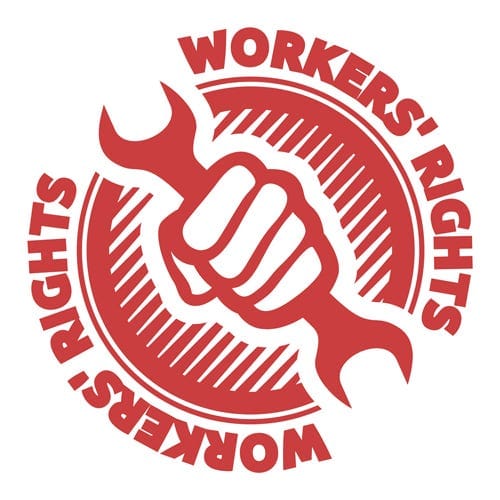
I had discussed unionizing with my small healthcare program, at Community Resources, Inc. It was in an old decommissioned hospital structure that was then a medical campus. It had a bunch of other programs as well in a pretty high needs part of town. Our small team had one little office in that building. We had 14 employees and it included a small mobile dental unit, medical staff, support staff, and a driver for the bus.
We had initially explored unionizing when we were officially fully integrated within this hospital system. We were told by the union that our situation would be very difficult to organize. They demanded that we organize the entire building which included tons of different programs. That was too difficult because we didn't have any unifying time together for our different disciplines. Or, as a mental health worker, I would have to organize with my one mental health colleague and then somehow with other mental health workers across the health system at 12 different locations. We couldn't as a team, in our own program, simply unionize.
Neither of those made any sense. So we were temporarily dissuaded. Then during COVID, in the first I'd say five or six months, we had a really traumatic experience. Our grant was pulled. They decided that being under the hospital system was a barrier. We were going to have to technically separate from the hospital system in order to continue this healthcare for the homeless.
The way they separated us from the hospital was completely nonsense. The same CEO was still our CEO. In hindsight, there were so many extremely sketchy parts to this. I wish we had talked to an employment lawyer initially. They told us we would not qualify for unemployment because our job was still there just with this other organization. I got so screwed. I worked for this organization for five and a half years. They ended up cutting our retirement because we (were forced to) switch to a new organization.
I didn't get the three years vested in my pension. Then I didn't get the five years vested in my pension. Because it was split up in two and a half and three years. It was outrageous. After they had forced us all to make this switch. Which affected our benefits. I didn't realize the degree to which it affected my benefits right away. I was just oblivious.
It was during COVID and we had primarily worked with the homeless population. Really, we had all switched to telehealth, right? And, in that first year or two, very few of my people had reliable phones. So I had not much work to do.
For me, it was absolutely traumatic to switch to this new entity. I was denied consultation with a psychiatrist and some of the support teams that I had had because it was no longer budgeted in our resources. They also made me discharge within a week, half of my caseload who had certain diagnoses. They just arbitrarily said, you can't work with anyone who has more than adjustment disorder and simple depression at mild levels.
Tons of my people had pretty serious mental illnesses. I wasn't working with people who really needed super high levels of care. I had a reasonable caseload. A lot of pretty severe trauma, of course, and quite a bit of longer term bipolar or schizophrenia. But it was people who were taking medication or who weren't needing a high level of care. Anyway, I had to pretty much overnight discharge people I had been working with for years. It was absolutely traumatic. They didn't let me have a real termination. It haunts me to think about people going, “is this for real? This is the end?” So that was terrible.
Then I had very little to do because again it was COVID. They loaned me out to another program in the hospital. I was loaned out to the healthy mom's program for 20 hours a week. Even though I was no longer employed by the hospital. So I was denied my pension because I was no longer part of the hospital system. But I was still working in the hospital. This is just evidence of some of the violations. The worker violations that happened all the time.
So with all of these new extremely unwanted changes, it was a no brainer. We were like, well, now they're really screwing us. We're very clearly a separate entity. We're no longer part of the hospital system. We started our second attempt to form a union. This time we did it very easily. Our whole team essentially was supportive. Maybe with some less enthusiastic votes from one of the doctors and the nutritionist who was a year away from retirement.
So we formed a union. The people in charge of the hospital who were now our CEOs, of course, tried to tell us it was a terrible idea. After we had voted for the union, of course they were going to drag on the negotiations for years. Almost immediately they fired 7 out of 10 of the people who were part of the union which was essentially everyone.
They fired almost all of the support staff. They fired a front desk worker who was so dedicated to this program. The program did not pay that well, but I think most people were there because of the mission. This front desk worker was such a treasure. She'd been there for close to 20 years. She was bilingual. It blew my mind that they would. She was making only $16 an hour. They fired everyone except one front desk worker, a doctor, and me. Then they decided to hire 10 new workers.
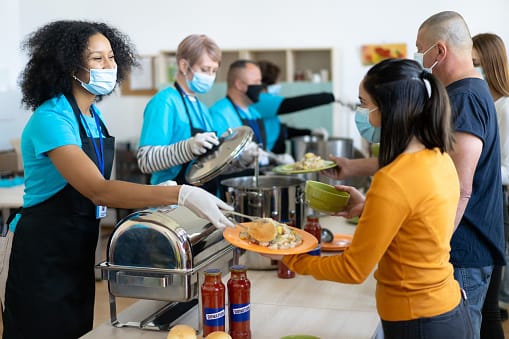
At this point in COVID, the people who were taking medical jobs were fired from the hospital systems who had required vaccines. So we hired a bunch of people who were not vaccinated. They were not going to stay. We were then in an office with a bunch of people who didn't know what we were doing. They basically just ruined the system. They hired a new doctor, the one doctor who had stayed. Then the only front desk worker who stayed immediately walked off. She said,” I quit.. If you're firing everyone else, this is a mess.”
So it was me and one doctor. This doctor had no interest in spending her evenings doing long sluggish union negotiations that were just going to be intentionally drawn out. So I show up to negotiate for me, the doctor, and a bunch of temp workers who have no stake in anything.
Jeff Jones (Liberation Psychotherapy): Let's be real. These temp workers are scab workers, correct?
Roslyn: Right. At that point, a lot of people were in this weird place where they had been fired because of their refusal to get vaccinated. It was a very strange dynamic. It was very demoralizing. At that point I was licensed and my colleague was not and so they fired him. I'm almost surprised they didn't fire me. Because that would have been shutting down their mental health program.
Yet I was dedicated. I was ready to stay the whole 10 years. It crushed me. I had almost perfect attendance in my five plus years. I think I had two sick days that were unplanned days off. I had tons of PTO. I had taken vacations, of course, but had scheduled them. Then I unexpectedly had a 7-year-old dog go to the vet. They told me he has a tumor and needs immediate euthanasia. I was devastated. I didn't expect this. I called and told my boss that I needed to take the whole week off. I need to euthanize him. I need to bury him. It was really devastating. She said, “we'll give you one day.”
So I went to my group therapist who wrote me a note to stay out for the week. I got the week off, but it was clear that they didn't want me to stay. I was feeling upset about everything that had happened. I ended up leaving very soon after that. I didn't want anything to do with these guys. It was so upsetting.
Jeff Jones (Liberation Psychotherapy): Unbelievable. A mental health clinic not taking care of their mental health workers. I mean it is believable but sad.
Roslyn: Right. I asked for a week off after 5 years of never having had short term needs. I had incredible attendance.
So that's what happened to our union and of course it was completely gone. It was gone because they just slowly rehired people in the longer term. The program still exists. They got another mental health worker at some point. It took them a year or two to restart the program. I don't even know if the current workers have any idea what happened.
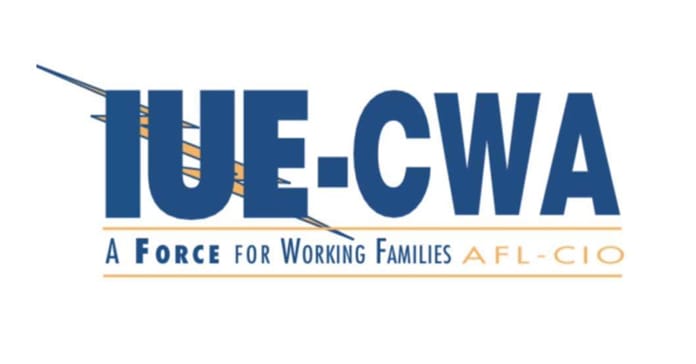
Jeff Jones (Liberation Psychotherapy): What union was it?
Roslyn: It was the IUECWA. I think there was some initial excitement, but not much support. We were such a small team. At a certain point, they saw what we were fighting. They were looking at the investment of their resources for being part of this long negotiation for only two members at that point.
Jeff Jones (Liberation Psychotherapy): That's tragic. As I believe we need unions that are going to fight for us.
Roslyn: Yeah.
Jeff Jones (Liberation Psychotherapy): So then you end up having to leave?
Roslyn: I left voluntarily after they denied my request for time off. I stayed another several weeks. Then I quickly got another job and left. I was so personally hurt at that point that they had treated me that way. I've been showing up with such a good attitude and so committed to these people. I was really committed. I loved that job. I had really wonderful relationships with a lot of people. I was fully planning to weather whatever storms I had to and stay for the 10 years. I thought of it as a really aligned job. It's what I had wanted to do.
Jeff Jones (Liberation Psychotherapy): So, I'm curious, after leaving, what was your analysis of unions in mental health work? What do you think could have been better?
Roslyn: It's been several years and it was quite a painful experience. So part of me has not given it the thought that it deserves. I still would really like to see unions in our mental health systems. Several people in the larger hospital system caught wind of what was happening and reached out. That happened over the course of maybe a year or two. A couple of people from different clinics reached out and said, “we're thinking about it”. These are much bigger clinics where they might have 20 or 30 therapists. That gave me some satisfaction or sense that it was worth it to at least make an effort that people heard about it and were inspired to try. I don't think anything has happened in the follow through or people's ability to take those risks.
I was discouraged. The way that they fired some of these workers who were so dedicated to the mission of this non-profit program. It was so painful to see that. I still carry guilt about my enthusiasm for the union, along with my co-workers. It was me and one other co-worker who were ready to go and ready to bring it in. I worry about the way that it ended up impacting people. Because of just the absolute union busting that tanked it. They just destroyed the program so quickly.
I see as things operate right now, the size of our program, the way that it was splintered was a drawback. I don't know. Maybe building more power or getting more community support before going public or something. I think if I were part of a team that was considering doing it again, it would need more community support building and try to get more attention.
There have been nurses that have gone on strike in one of the hospital systems since. Of course, it was wonderful to be part of a huge community of support showing up for them.
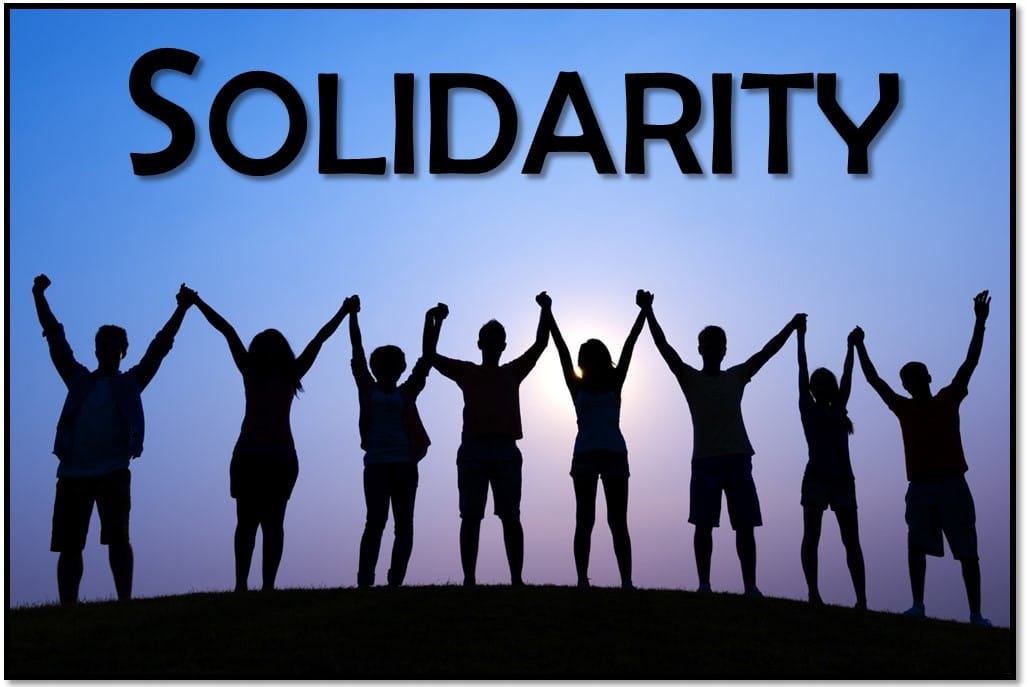
Jeff Jones (Liberation Psychotherapy): We are just at the beginning of these conversations of creating a larger mass movement of union organizing in the mental health field. It isn't about having the right answers. It's about having these discussions. At this time we're not even having these discussions. We're in the pre-contemplation stage if you will.
What I see is that so many people in our field have bought into this idea that “I'm a professional and I'm going to be rich in the future. So why would I want to unionize?” Yet this isn't happening. We're not getting rich. So, why don't we start organizing and talking to each other about this?
Roslyn: Yeah.
Stay tuned for part 2 coming next Friday where we dive into the connections of how the police crush community mental health teams.
